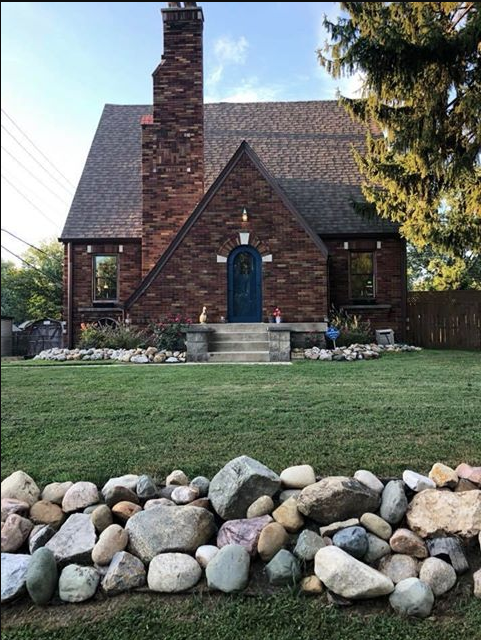 |
| Mitch Mowrer's 1928 brick Dover • 3130 Chamberlin Drive, Indianapolis, Indiana |
Yes, yes, this is THAT brick Dover!
 |
| Mitch's house, in the 1930 Sears Modern Homes catalog. |
The 1930 Sears Modern Homes catalog was the first regular-issue catalog to begin featuring more than just a few brick veneer homes. Previous to that, only the
Bedford,
Rockford, and
Pittsburgh were offered* with brick veneer. But, in 1929, a special "Brick Veneer" supplement was issued offering eleven models with a brick veneer option. That supplement had been the first one to offer the collection of homes that Sears had decided to market with the option of a face-brick exterior, instead of only wood options. They gave many of the brick-veneer versions their own names, and the brick version of the
Dover was called the
Mansfield.
 |
The 1929 special supplement from Sears
See it here, on Daily Bungalow's page |
 |
| The cover of the 1930 Sears Modern Homes catalog |
But, in 1928, when there was not yet a Mansfield, a family in Indiana requested that the Dover model that they wanted, be built with a brick veneer exterior. And, in the 1930 catalog--right, the one featuring all of the just-released eleven new models with brick veneer exterior--on the first interior page, Sears offered a full page spread showing off five of their new brick-veneer options. Here it is:
 |
| Page 1 of the 1930 Sears Modern Homes catalog. |
But, instead of showing a Mansfield, one of those five was actually a "Special Brick Veneer Dover", built in Indiana. It differed a bit from the Mansfield.
Well, that brick-veneer
Dover was built, more specifically, in Indianapolis, Indiana. And, in January of 2017, that very house was brought to my attention via a message on our
Sears Modern Homes Facebook page... although I didn't realize it, at first.
The new owner, Mitch Mowrer, was excited about his new purchase. He had watched the house sit empty for five years, and had been waiting for it to come up for sale. When he bought it, he messaged us:
Well, at first, I was doubtful. To begin with, I noticed the iron strapping on the door. No, no, no... that is not Sears iron strapping. As I mentioned just recently, in
a blog post, Sears had a very distinctive curlycue end on the hinge end of their iron strapping.
 |
| Sears door options, shown in the 1930 Sears Modern Homes catalog. |
 |
The front door on Mitch's Indianapolis house.
He thinks it may have been replaced over the years, but it looks like a Sears door.. just not Sears iron strapping.
The old strapping may have been removed for a paint job, and replaced with what we see here. |
So, I was doubtful about the house being a Sears house.
Additionally, the style of chimney was not at all the brickwork style/shape that we usually see on a front-of-the-house chimney on a Sears house. We usually see one straight line on the right side, and then one change in width on the left side, about 2/3 of the way up... like this, on the Lewiston:
 |
| A Lewiston in North Plainfield, New Jersey. |
Or, sometimes, this style, where this is a width change on both sides, at different spots, with a sort of peaked cap over those spots... but, it's very symmetrical:
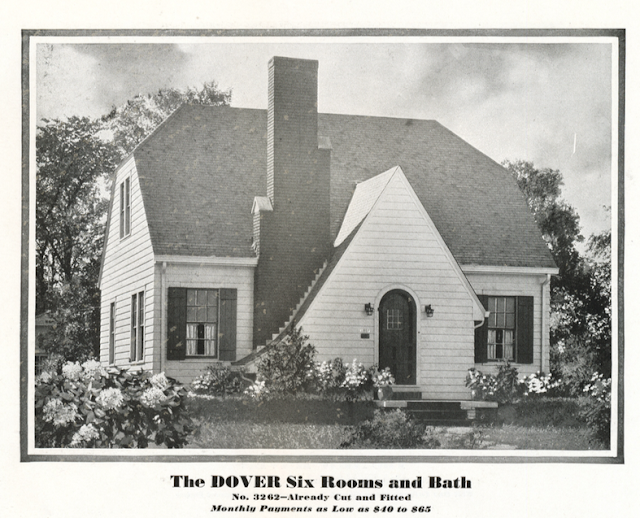 |
| Sears Dover in the 1932 catalog (same image is in the 1931 catalog) |
The Mansfield shows this chimney, in the catalog, which is similar to the Dover's chimney, but with the first width change much earlier in the height of the chimney:
 |
| Sears Mansfield's chimney, 1930 catalog. |
But, here is the chimney on Mitch Mowrer's house:
Well, now... no. Not a Sears front chimney. Very strange shape, and one I've never seen before on a Sears house.
On top of all of that, the Sears Dover (or its brick twin, the Mansfield ) is a model with clipped side gables--you know, instead of being pointy all the way up to the top, the point of the gable is cut off, like this:
 |
| 1929 image of the Sears Dover (same image is in the 1930 catalog) |
But, Mitch's house didn't have clipped gables:
Though there is a model (the Maplewood ) that has no clipped gables, and has a front gable and chimney like this, the Maplewood is not quite as wide, and its front gable is definitely smaller, with a pronounced dip (other years, the Dover, too, has a very pronounced "swoopy" curve, but much more so than the Maplewood ):
Here is the pronounced swoop that we had come to associate with the
Dover... but, actually, this look wasn't introduced until 1931 or 1932 (coincidentally, after the
Mansfield was introduced, with this same pronounced, graceful curve):
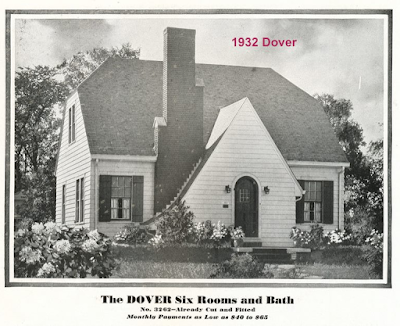 |
The Dover had three looks to its front gable, throughout its tenure in the Sears Modern Homes catalogs.
Antique Home/Daily Bungalow shows the final look, here. |
Mitch had already done his homework, and measured his house, and checked out the floor plans of the two models, and knew that his house was just like the
Dover, and not like the
Maplewood.
 |
| The Sears Dover's first floor plan, as shown in the 1930 Sears Modern Homes catalog. |
 |
| The Sears Dover's second floor plan, as shown in the 1930 Sears Modern Homes catalog. |
Finally, I happened to open my 1930 catalog, and there, on the first page, was that spread of brick-veneer homes. Holy cow! There was an exact match to Mitch's house, and it was not quite like other
Dovers or
Mansfields we had seen. The house was brick, but clearly didn't match the look of the 1929
Mansfield. The 1929+
Mansfield has clipped gables, and does not have the distinctive decorative white stone accents, plus, Mitch's house had two extra small windows on the left side, had the same chimney as the one in this catalog image, and also has two decorative strips of brickwork along the lower portion of the house, as well as a double window on the living room wall (again, left side of the house), whereas the standard
Dover or
Mansfield has a triple there.. Clearly, Mitch's house is a customized
Dover, done in brick veneer before the Mansfield was "a thing", and is the house that Sears showcased on page one of the 1930 catalog. Here is Mitch's house against both the brick
Mansfield, and the showcased brick
Dover in the 1930 catalog:
 |
| Clearly, it's not a Mansfield. |
 |
| But, it's a perfect match for the customized "Special Brick Veneer DOVER" shown in the 1930 catalog. |
This brick Dover in Indianapolis was even used in newspaper advertising:
 |
| There it is! Note that irregular chimney, and the white stone accents. |
The Indianapolis Brick-Veneer Dover, Today
I asked Mitch, in 2017, if I might blog about his cool house. But, he had just taken possession of the house, and intended to do some major renovating, to bring it back to its original glory. We agreed to wait until that happened. As 2017 and then most of 2018 went on, I figured that maybe Mitch had decided against having his house showcased in a blog post, but, I noticed that he had "liked" a posting of the
Mansfield on
our Sears FB page. So, I contacted him, and he said that, at long last, the house was beautifully refreshed, and that he'd be delighted to share photos. So, here we go:
 |
| The stairs were all refinished, and all of the wood in the house was refreshed. It's beautiful! |
 |
Here is that same view, shown in the catalogs, of this area of the Dover and Mansfield
(the two models are the exact same floor plan, and only differ in the exterior siding). |
An interesting aspect of the
Dover/Mansfield floor plan, is that the front staircase is accessible from the entry way (seen here), but also from the kitchen... off to the right. Here it is, in Mitch's house:
The interior doors (you can see this one, to a closet, peeking out in the left corner of the photo) in Mitch's house, are a style that Sears offered over the years, shown here in the 1930 Building materials catalog:
 |
| These doors were offered in both oak and birch, and you could also choose to hang the two-panel door with either the larger section at the bottom, or at the top. This image is from the 1930 Building Supplies catalog. |
Here is that same door, nicely stained, shown in an early page of the 1929 Building Supplies catalog:
And, here are images of that door style, inside Mitch's house:
 |
| Here is that closet door. |
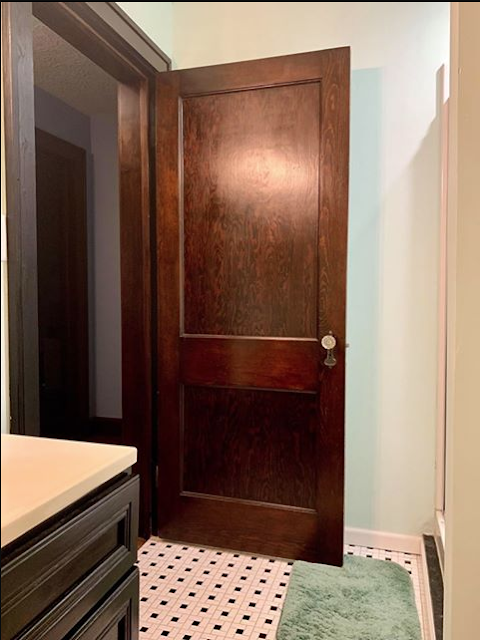 |
| ...and, one of the bathroom doors. Beautiful patina! |
While we're at it, let's point out that door handle hardware: That's the Sears
LaTosca door hardware, offered only by Sears!
 |
| Look at that beautiful glass door knob, too! |
The living room area where the fireplace is, was also highlighted in the catalog images about the
Mansfield (note that the
Mansfield placed a French-door to the left of the fireplace, whereas the
Dover does not):
 |
| By the way, Mitch mentioned that the original windows had to be replaced, but they honored the original structure of the house, by using quality wood windows for their replacements. |
The front door, dining room, and bathrooms have also been brought back to their original glory:
Even the staircase and the upstairs have polish and patina to show off:
We don't often get to see the back of our Sears houses, but here is this brick
Dover, from the rear:
As we enter the snowy season, this view seems appropriate to show!:
Thanks so much to Mitch, for sharing this great house with us. We join him in appreciating the quality of these homes, and applaud him for this sensitive, beautiful renovation!
*
Regarding brick-veneer Sears homes prior to 1929: Sears does seem to have obliged people who requested that their house be made of brick veneer, during the 1920s, at least in certain areas of the country where brick was the predominant exterior product for houses. In Pittsburgh, for example, the majority of the many, many Sears homes there -- most built in the 19-teens and 1920s -- are made of brick veneer. Here, for example, is a brick Sears Americus, in Pittsburgh, built in 1926. We don't know the definite reason for the abundance of brick veneer homes in Pittsburgh, but Karen DeJeet has pointed out to us that the greater Pittsburgh area was home to more than one brick-making facility, and so brick was a very cost-efficient commodity there. There may also have been a regulation in effect, requiring brick housing, to ward against spreading fires, as there was in the city of St. Louis (Missouri). However, the catalogs previous to 1929 did not market brick as an option. It was not mentioned, except for the Bedford, Pittsburgh, and Rockford models.
Post 1930 use of brick veneer:
Once the 1929 brick-veneer supplement was published, the catalogs began offering brick veneer as a regular option. In 1936, for example, there is a full-page mention of brick veneer as an option (thanks Andrew Mutch):
 |
| 1936 Sears Modern Homes catalog |
And, by the 1940 catalog, even stone veneer was offered:
 |
| From a final page of the 1940 Sears Modern Homes catalog. |






























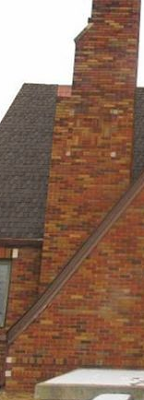


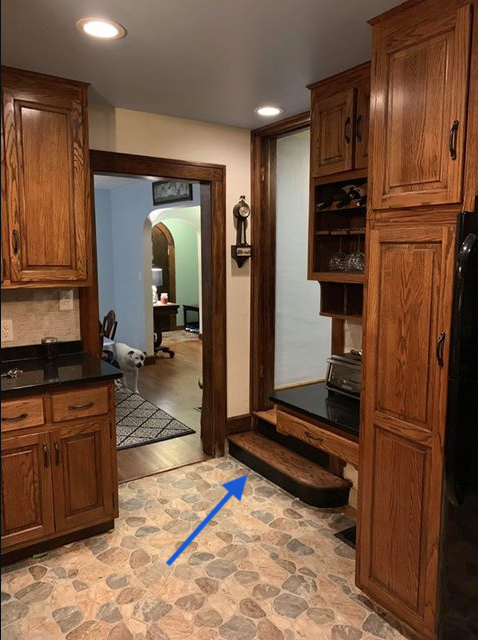



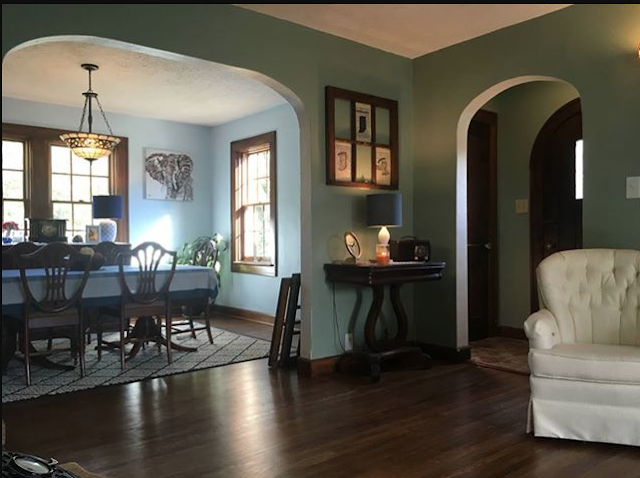











Congratulations, Mitch! Your home is beautiful.
ReplyDeleteThank you!
DeleteBeautiful house!
ReplyDeleteOne of my neighbors has a non-brick The Dover with the clipped roof.
I am convinced that I lived in a customized brick veneer Dover as a child in the 1970's in Blacksburg, Virginia. Either that, or it was a good copy. The roof isn't clipped, and the staircase turns up to a landing about 2/3 of the way up instead of having a landing at the bottom. It also has a small side porch. But it has the same floorplan, swooping roof by the front door, triple dining room window, etc. that I'm pretty sure it had to be a Dover. Pretty sure it was built around 1930. Wish I could go back and look for grease pencil numbers on the boards or check the old property records to be sure.
ReplyDeleteThis comment has been removed by a blog administrator.
DeleteBill Cook, we’d love to help you verify that. We need an address, so that we can look at it on Google Streetview. Thanks. Feel free to email me at SearsHouseSeeker@gmail.com
Delete